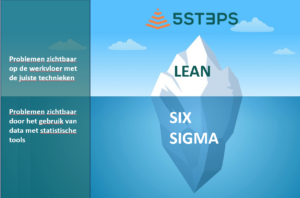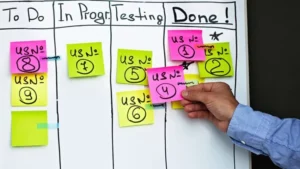Organizational roadblocks and hurdles for implementing Lean Six Sigma
Organizational roadblocks and hurdles for implementing Lean Six Sigma are about what to expect implementing Lean Six Sigma. You don not want to fail in the deployment of Lean Six Sigma (LSS) and knowledge on these roadblocks and hurdles helps.
Organizational roadblocks and hurdles for implementing Lean Six Sigma is about what you can expect. You can read about the barriers in the Body of Knowledge You can recognize the barriers as organizational roadblocks or hurdles. How can you recognize these barriers and hurdles?
Knowledge
First you should watch out for a gap in knowledge. A lot of people make a judgment based on what other people are saying. You will experience that some will see the similarities of LSS and what they already know. Lean and Six Sigma are independent approaches and not an add-on on existing day-to-day businesses. The need for applying LSS is always problem based. In summary, as a Change Agent or Black Belt you will meet this so called cognitive hurdle.
Politics
Another hurdle you will experience is the need for Lean Six Sigma. Although organizations should be centered and organized around the customer, often they are not. Some parts in the organization will have a benefit in sustaining the status quo. Not from evilness, but because they are organized like that. Politics in businesses seems to be a dirty word, but politics is basically about interests. Sometimes this leads to a conflict and the winner of the conflict determines the direction of the change.
organizational roadblocks and hurdles: Conflict on resources
A practical thing every project or program has to deal with is the conflict between current operations and change capacity. When you want to change operations you need capacity. And then you get the paradox of the lumber jacker who has to chop trees and does not have time to sharpen his ax. Reason: there are trees to be chopped.
organizational roadblocks and hurdles: Motivation
In the end it is about motivation. You can take the cognitive, the politics or the resource hurdle, when people do not feel the need to change, you are doomed. The changes seem to be apparent but in fact nothing has changed. Every change agent should have the skills to motivate people and apply techniques for sustaining the new reached level.








